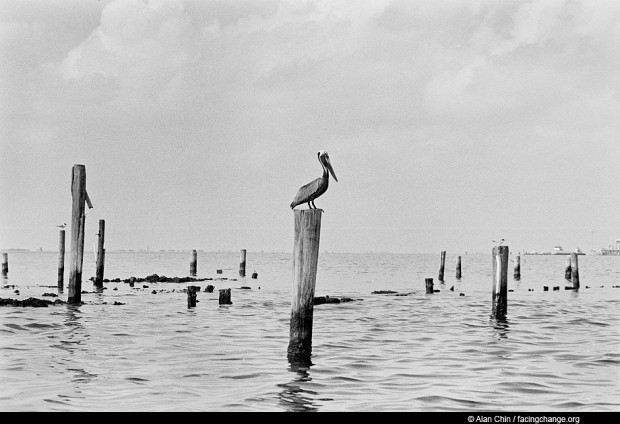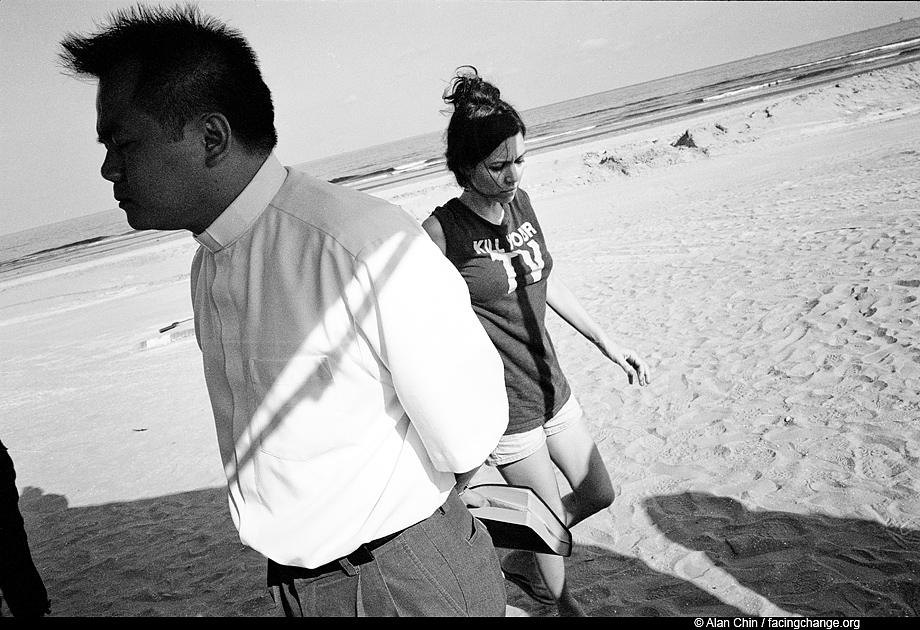Notes
Alan Chin: Creeping Doom
After years of coming to Louisiana during and in the aftermath of Hurricane Katrina, I, like many, had been overjoyed this Mardi Gras, when the New Orleans Saints won the Super Bowl and at long, long last, the feeling in this city was that maybe a corner had finally been turned. It was the first time since before the storm that I came to see my friends and have a good time, rather than work and photograph.
So my heart sank when BP’s Deepwater Horizon oil well burned and sank, unleashing the biggest oil spill in our country’s history. I knew that, unlike natural disaster or war, the impact would not be immediately visible, even though the consequences are just as grave in the long term. I felt no rush to come. Rather, I was depressed at the thought of this region getting battered again, never mind the politics of regulatory failure and corporate greed.
Out on the water, visiting the barrier islands off of Grand Isle and Venice, thousands of birds still fly and nest. Dolphins swim and dance. The long, hot summer sun beats down, relieved only by the artificial breeze created by a motorboat’s engine. If I weren’t here because of this catastrophe, these would be pleasant days in a beautiful environment. But instead there is the inescapable sense of creeping doom.
Everybody is praying for a miracle.
–Alan Chin
PHOTOGRAPHS by: ALAN CHIN / facingchange.org
captions– Top: Barrier Islands off GRAND ISLE, LA — Pelicans are one of the vulnerable species hard hit by the BP Deepwater Horizon oil spill. Many of their nesting grounds are on the barrier islands and reefs.
Bottom: GRAND ISLE, LA — June 13, 2010. Ecumenical interfaith prayer service as part of community response to the BP Deepwater Horizon oil spill. Father Michael Tran of the local Catholic Church at left.




Reactions
Comments Powered by Disqus